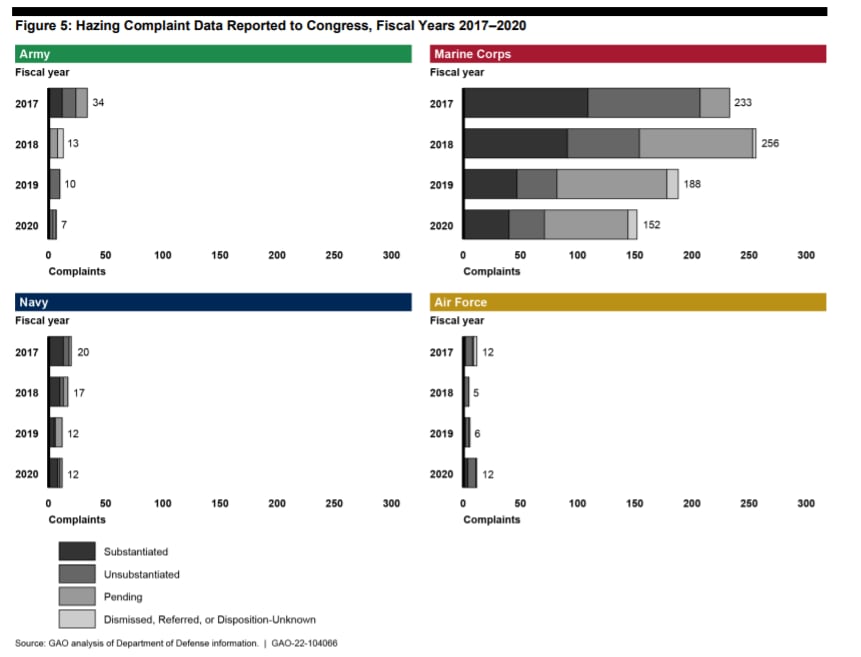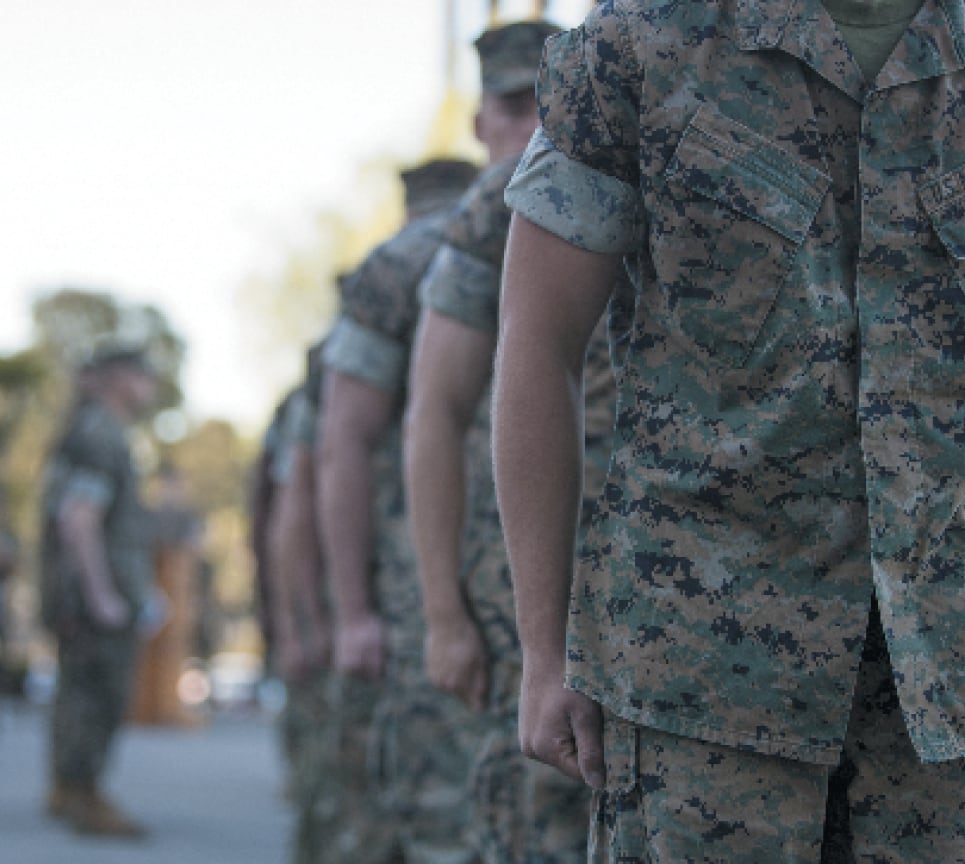The U.S. Defense Department’s numbers on military hazing likely understate the problem among the ranks, according to a Government Accountability Office report released this month, which also found that the department needs to get better at reporting such incidents, preventing hazing and bolstering response training.
“The military services have a rich tradition of initiation ceremonies and rights of passage, but at times, they have included inappropriate or abusive behavior,” the report states. “According to DOD, hazing jeopardizes readiness and weakens trust within the ranks.”
The report details 989 complaints were filed in total from fiscal years 2017 ton 2020.
The report indicates that a vast majority, 829 hazing complaints, originated in the Marine Corps as reported by the Defense Department to Congress.
By contrast, the Army had 64 reported complaints in that timeframe, while the Navy and Air Force reported 61 and 35 complaints respectively, according to the GAO.

The Pentagon is required to report hazing incidents to Congress each year, but GAO found them lacking some information.
A 2018 DOD survey suggests that the department “significantly understated the number of hazing incidents by potentially tens of thousands of incidents,” according to the GAO.
“Prevalence is important because decision makers can use it as a starting point to determine if efforts to prevent and respond to hazing are effective,” the report adds.
GAO recommended in a 2016 report that the DOD better evaluate the prevalence of hazing, and while DOD agreed, it has not yet implemented the watchdog’s prescriptions, according to the latest report.
This month’s findings also note that the Congressional requirement for DOD submit such hazing reports “has lapsed,” and the department’s earlier reports to Congress did not include informal hazing complaint information, nor complaints by National Guard members operating under the command of state governors, which are federally funded.
GAO also found that the Defense Equal Opportunity Management Institute, or DEOMI, has not assessed prevention and response training, and DEOMI officials told GAO investigators that the institute “did not have the resources to execute this responsibility.”
A DOD official told investigators that funding had been approved for this facet of the DEOMI mission as of October, but “did not provide information on how or when DEOMI would review the training plans.”
RELATED

“Additionally, the services may not be reinforcing this training frequently enough and officials said they have not assessed the effectiveness of this training,” the GAO report states. “Until DOD ensures that servicemember training is reviewed for sufficiency, reinforced at a minimum frequency, and assessed for effectiveness, it will be limited in its ability to ensure that training achieves its objectives.”
The report recommends that Congress require DOD to submit more complete hazing data going forward.
The watchdog also generated 12 recommendations to DOD, including that the department take steps to improve data quality in its reports, while assessing and reinforcing servicemember training and ensuring that billets for Military Equal Opportunity troops are filled.
“DOD generally concurred with the recommendations,” the GAO report states.
.
Geoff is the managing editor of Military Times, but he still loves writing stories. He covered Iraq and Afghanistan extensively and was a reporter at the Chicago Tribune. He welcomes any and all kinds of tips at geoffz@militarytimes.com.





